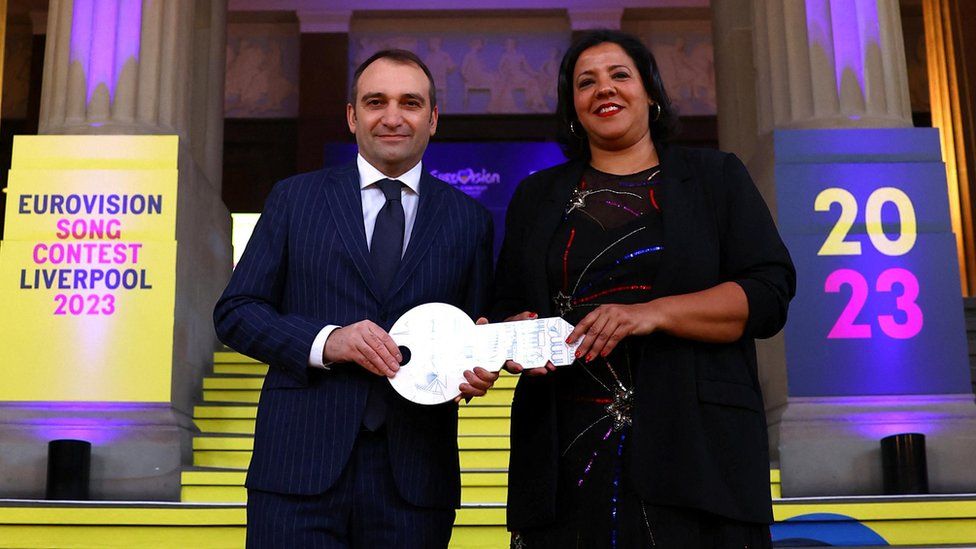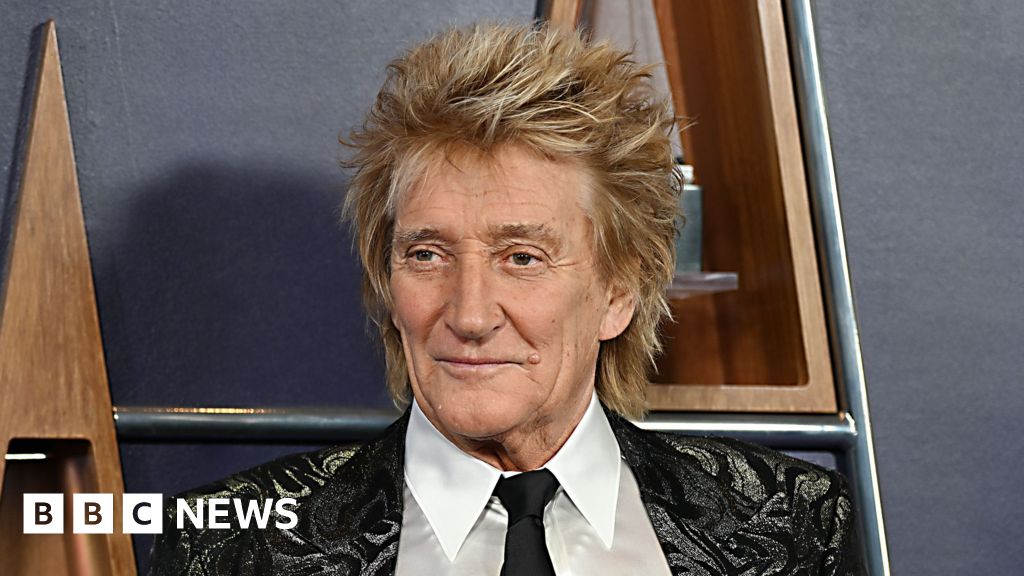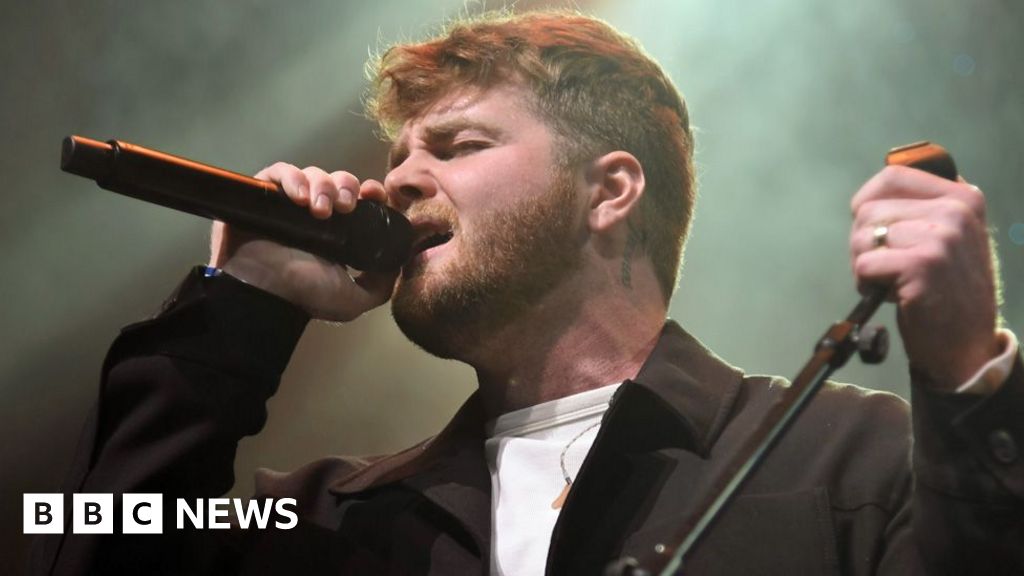ARTICLE AD BOX
 Image source, Reuters
Image source, Reuters
Turin mayor Stefano Lo Russo handed over the symbolic Eurovision key to Liverpool mayor Joanne Anderson a week ago
By Claire Hamilton
Political reporter, BBC Radio Merseyside
Trade unions have raised concerns with Liverpool City Council over the role volunteers will play when the city hosts the Eurovision contest in May.
The council wants more than 500 people to help in unpaid roles that range from greeting artists to scanning tickets and giving travel advice.
The authority said volunteering was a chance "to meet new people, gain skills and make great memories".
However, unions said the roles on offer sounded more akin to paid jobs.
The volunteers will help deliver about two weeks of music, entertainment and art in the city, as well as the semi-finals and grand final at the waterfront arena and fan park.
A description on the council's website stated it would be "a rewarding experience to feel part of a team and to have contributed to an event that will be talked about for decades".
"Volunteering is an opportunity to meet new people, gain skills and make great memories," it added.
However, Trades Union Congress (TUC) regional secretary Jay McKenna told BBC Radio Merseyside that after seeing the roles advertised, unions were concerned that people were "being asked for various requirements, including a minimum number of shifts they ought to be available, not being paid [and] not being recompensed for travel costs".
"Some of these roles appear to amount to what we would see as paid work and that raises questions," he said.
"I can't think that anyone attending any major event like Eurovision would expect anyone scanning their tickets wouldn't be getting paid for that work.
"One of the [other] jobs is cleaning and replenishing riders in the dressing rooms.
"So, those musicians will take to the stage but you'll be involved in cleaning their dressing rooms and maybe even providing them with food and drink and not being paid for that."
Image source, Reuters
Image caption,The council wants volunteers to help across two weeks of events in the city
Mr McKenna said the big question he would ask the council was "are there more people being paid to do that work than there are volunteers?"
"If there are paid cleaners and a team of staff that will be doing the ticket scanning and so on supported by volunteers then that is something we'd expect.
"If they are doing that work and there isn't a team of paid cleaners... it looks like we are asking volunteers to do that work, and that jars with us.
"Volunteering has a role in society but in a cost-of-living crisis, we are asking people to do roles and responsibilities in what looks like and smells like a job.
"Having these events is really important, but it shouldn't be to the financial detriment of those who are required to make it happen."
The unions have arranged to meet the council to discuss their concerns.
Image source, Reuters
Image caption,Councillor Harry Doyle said volunteers, such as those who helped at the 2022 Commonwealth Games, have always been used to deliver big events
Harry Doyle, the authority's cabinet member for culture, said "when it comes to large scale events we always have volunteers or ambassadors as I like to call them".
"We've already had 1,500 people apply so you can see the sheer scale of excitement of people wanting to get involved.
"These are fans who want to have that access to delegations and they just want to have all the perks that come with being involved."
He said the role descriptions were "no different to what we've done before or whatever other cities have done before".
"We are meeting the trade unions and will discuss their concerns," he said.
"We want to make sure that we can work closely and be an exemplar.
"Volunteers will be the face of Eurovision and welcome people to our city."
He added that Eurovision would also act as a springboard for people to find well-paid jobs in hospitality.
All the build-up, insights and analysis will be explored each week on a new BBC podcast called Eurovisioncast.
Eurovisioncast is available on BBC Sounds, or search wherever you get your podcasts from.
Why not follow BBC North West on Facebook, Twitter and Instagram? You can also send story ideas to northwest.newsonline@bbc.co.uk
Related Internet Links
The BBC is not responsible for the content of external sites.

 2 years ago
56
2 years ago
56








 English (US) ·
English (US) ·